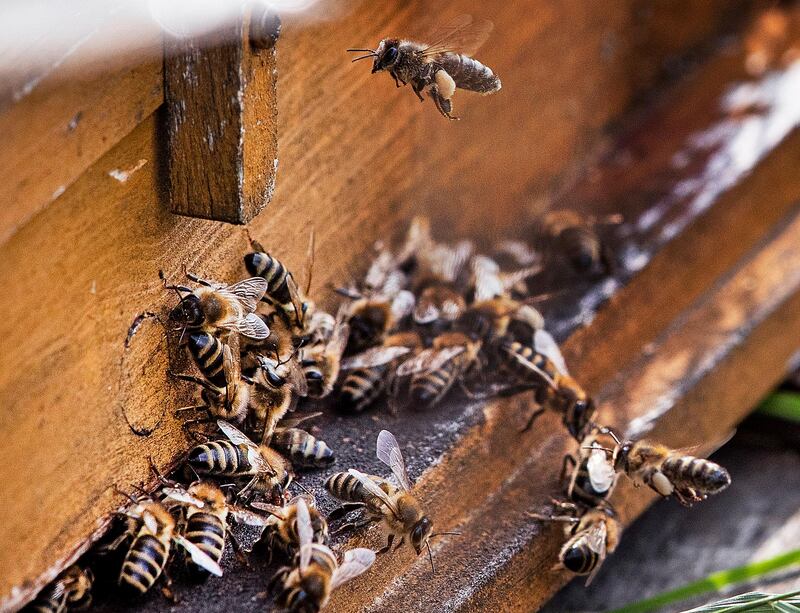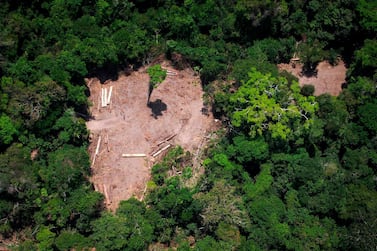We are in the throes of what scientists term the sixth mass extinction, an age in which, on average, between 150 and 200 species become extinct every single day. Some might argue that extinction is a natural phenomenon and part of the cycle of planetary life, and there is a grain of truth in this. However, scientists suggest that the process has actually accelerated to 1,000 times faster than normal. This poses grave concerns, challenging Charles Darwin’s theory of natural selection by giving flora and fauna little chance to adapt to change.
What does this mean for humankind when we are dependent on the Earth's ecosystems? In 1997, Robert Constanza published a paper in Nature journal on the estimated value of the world's ecosystem and the Earth's resources. He and fellow researchers calculated it totalled $33 trillion per year. Our economy is intrinsically connected to our environment but tragically, the planet's capital is seldom accounted for in business.
An example of how closely interlinked our economy and environment are is the centuries-old drink that fuels us - coffee. Yields of coffee are decreasing for the simple reason that our bees are dying. Bee pollination is responsible for about one-quarter of coffee production and with the decline in bee populations, coffee yields and the quality of the beans are also going downhill. This has a detrimental effect on coffee producers, whose livelihoods are affected. Bees and other pollinators are tiny miracle workers, responsible for 75 per cent of global food production, yet their very existence is under threat.
Can you imagine a world with no plant species of any kind? The delicate periwinkle flower was once seen as a stubborn weed but is actually a medicinal plant that has increased the survival rate from childhood leukaemia by 80 per cent and also helps in the treatment of Hodgkin's Disease, a cancer of the immune system. Many potentially beneficial plants are yet to be studied. The International Union for Conservation of Nature has only researched a fraction of all plant species, of which 68 per cent are threatened by extinction.
We have much to learn from nature because, however you believe the Earth came into existence, all things are created, and evolve into, their most perfect form. The study of emulating processes and nature for design purposes is called biomimicry. This area of research has created breakthroughs in some of the challenges we face today. There are numerous examples of biomimicry, such as the fastest train in the world that was inspired by the kingfisher or the creation or antibacterial surfaces based on the shape of the denticles on shark skin. As water is pivotal to sustaining humanity, studying the darkling beetle, a desert insect, to observe how morning dew accumulates on its patterned back, is contributing to the creation of technologies to collect water from the air.
Like this humble beetle, bugs are fascinating and resilient creatures, many having survived five previous mass extinctions. Throughout history, mankind has been inspired to copy nature’s creations, including the Wright brothers’ first attempts to build a flying machine, inspired by the flight of birds.
More than 180 conservationists around the world, passionate about saving a particular type of species, are being funded through Abu Dhabi Crown Prince Sheikh Mohamed bin Zayed’s Conservation Fund, which aims to help improve the survival of species under threat from human activity, the philosophy being that every single species is important.
Thomas Kuhn's landmark book The Structure of Scientific Revolutions argued that the evolution of scientific theory was paradigm-driven rather than linear. He wrote that people process disruptive information by first translating it into a familiar framework until a crisis arises. Scientific discoveries happen after a paradigm shift, when a crisis leads to a new framework. It is time for us all to accept we need a similar shift in our thinking to come up with solutions, inspired by nature, to address the challenges of our time.
Nobel prize-winner Paul Crutzen popularised the term anthropocene, which refers to human activity that has altered the state of our planet. Unlike other mass extinctions, the rapid rate of man-made change we are experiencing now means that many species are unable to adapt. An article published by the World Economic Forum states that four ancient civilisations were wiped out by climate change. Let’s not make the same mistake and destroy our own civilisation the same way. The Earth has managed to survive these cataclysms and will surely live on but I would like to ensure that future generations get to enjoy all creatures, great and small, that currently roam this planet.
The soaring heatwaves this summer are only the beginning of a turbulent time we will continue to face as our world grows warmer. We must appreciate nature and take care of all the species that share the planet with us. Every species has a role to play, both those we are aware of and those waiting to be discovered. Let’s do all we can to preserve the natural treasures that we take for granted.
Sheikha Shamma bint Sultan bin Khalifa Al Nahyan is chief executive officer of Alliances for Global Sustainability






